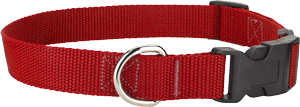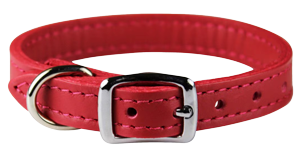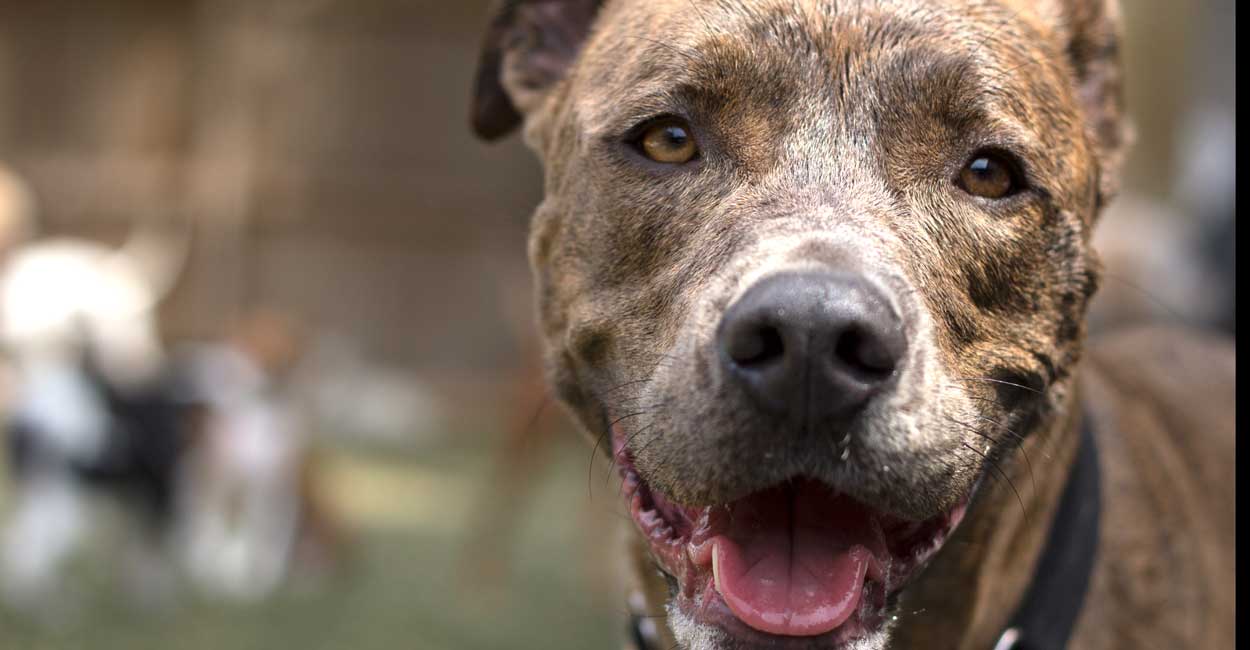
The following requirements are in place for all dogs who come here for daycare. This helps ensure the safety of all of our customers, their dogs, and our staff.
Puppies must have received all rounds of each required vaccination, and all vaccinations must be current, before being able to enter our facility. This is to help prevent illness with your puppy, as they have relatively weak immune systems for the first several months.
Required vaccinations:
We may be able to waive certain vaccinations if your veterinarian supplies a written letter stating the medical reasons.
Dogs with ailments such as these will require a note from your vet and/or a screening evaluation from our staff before being allowed back to the play areas. If a dog exhibits typical symptoms associated with these conditions (such as coughing), we would assume it
Please note that weekend daycare is generally not available during the Summer and early Fall, due to high boarding volume associated with travel. It is available during the off-season, from late Fall to early Spring.

We sell quick-release collars such as this, in various colors and sizes. They range from $8 to $13 depending on the size.

Buckle-style collars take too long to remove and are not allowed in play. These collars have a pin that fits through a hole, similar to a belt.
Proof of vaccinations, kept up-to-date
We must have documentation on file from your veterinarian showing that all required vaccinations are current. We'll remind you when they're due, and you can fax them to us at (312) 276-8588, e-mail them to us, or bring them in.Puppies must have received all rounds of each required vaccination, and all vaccinations must be current, before being able to enter our facility. This is to help prevent illness with your puppy, as they have relatively weak immune systems for the first several months.
Required vaccinations:
- Rabies if four months or older
- Distemper and Parvo (DHLPP, DLPP, or something similar that includes "D" and "P")
- Bordatella (also known as "kennel cough" or "canine cough")
- Canine Influenza (the strain called "H3N2" at a minimum, although we recommend getting the "bivalent" option for maximum protection).
Please note: The first time your dog receives this vaccination, it comes in two rounds, typically three weeks apart. You can board with just the first round, as long as it was within the past three weeks. If your dog received the first round more than three weeks ago, and you haven't gotten the second round, you will need to start over with the first round before your dog can enter our facility.
Click here to learn more about this vaccination and why we require it.
- You may substitute a veterinary certificate of adequate titer protection issued within the previous 12 months for the distemper and parvovirus vaccinations.
We may be able to waive certain vaccinations if your veterinarian supplies a written letter stating the medical reasons.
No contagious conditions
For the safety of our other customers, your dog must not exhibit contagious ailments such as the following:- Upper respiratory illness, including (but not limited to) canine cough or canine influenza
- Stomach virus / vomiting
- Giardia
- Worms or parasites
- CPV (mouth warts)
- Fleas
Dogs with ailments such as these will require a note from your vet and/or a screening evaluation from our staff before being allowed back to the play areas. If a dog exhibits typical symptoms associated with these conditions (such as coughing), we would assume it
Spayed or neutered if seven months or older, if entering group play
Large play groups and "intact" dogs are not a good combination. Even if your puppy may not be aggressive, other dogs typically don't react well to intact dogs, which can lead to aggression and a fight. In order to minimize the chance of this happening, we do require spaying or neutering once a puppy reaches seven months old. This is standard practice in the dog daycare industry across the country and is for the safety of your dog, our staff, and our customers' dogs. It is also recommended by most leading veterinarians. At least two months old
It's really best that dogs under two months old stay with their mother, so they learn basic skills and behaviors that they will take with them through life. Once they reach two months, they'll also be big enough to stand their ground in a play group.Reservations
Reservations are required on all days, including weekdays and weekends, even if you have a prepaid package. Some dogs come one day per month, some come one per week. Most dogs do not come here more than two days per week, as they will be very tired afterwards, including the next day. Click here to request a reservation.Please note that weekend daycare is generally not available during the Summer and early Fall, due to high boarding volume associated with travel. It is available during the off-season, from late Fall to early Spring.
Check in by noon
All daycare dogs must check in by noon, including on weekends. This is because the playgroups are well-established by this time, and some of the dogs can be tired. When a new dog enters the group at this point, it could easily lead to another dog become reactive, which could create an injury for your dog, another dog, or a staff member. Please note that we keep noon as a hard cutoff time - we cannot allow a dog into play who shows up at 12:10pm, for example, as people would expect that any time they arrive is close enough to noon.
Please note that we strongly recommend that all dogs who are new to our daycare arrive before 9am on their first day
All dogs in play must have a proper collar
- Every dog in play must have a collar. This helps us separate them if necessary.
- The collar must have a "quick release" feature, so it can be removed quickly if dogs get in a fight or one dog's jaw gets stuck on another collar
- No prong collars are allowed in play, as they can injure another dog
- No buckle-style collars are allowed, as they can take too long to remove
- No choke chains or shock collars
- Every dog in play must have an ID tag on its collar, with at least its name. This is because many dogs look alike, and we cannot take the risk that a dog would, for example, receive the wrong food or medicine. We make ID tags here, and every dog will receive one free tag. After that, any future tags cost $5 plus tax.
- We strongly dissuade any "designer" collars (leather, for example), as they can become easily damaged during play. We are not responsible for damage done to any collar.

We sell quick-release collars such as this, in various colors and sizes. They range from $8 to $13 depending on the size.

Buckle-style collars take too long to remove and are not allowed in play. These collars have a pin that fits through a hole, similar to a belt.
No medicine on your dog's skin or coat if entering group play
We cannot have dogs in play who have recently received any medicine that goes onto their skin or coat, as another dog could lick it. This could cause the other dog to feel sick, or even experience a chemical burn on its lips or tongue. If you need to give your dog medicine that is applied to its skin, it must be done so at least three days before coming here so it has time to absorb. If we notice medicine on a dog's fur or skin, we would need to rinse it off immediately or remove the dog from play.No injuries, open wounds, sedatives, stitches, or bandages while in group play
We cannot have any dog in play with an injury, open wound, stitches, or bandages. Stitches or bandages would come off in no time. Injuries could easily worsen, and open wounds could easily get infected. All of these scenarios would be detrimental to your dog's health, and your vet would not be happy with us as professionals.No harnesses, apparel, or muzzles while in group play
Other dogs pull on harnesses, jackets, and other apparel. This can cause damage to these items, and can cause the other dog to get its jaws caught up in them. Muzzles can cause other dogs to become reactive, which can cause your dog to become reactive. These situations can be very dangerous and could lead to an injury to a dog or staff member. We remove all such items in play. At least one hourlong nap for all daycare dogs
We attempt to give at least one nap per day to every dog who comes here for daycare, both on weekdays and weekends. This is important because it gives your dog time to take a break from play, similar to a young child taking a nap at preschool. When dogs are overly tired, this can cause reactivity and an injury to your dog, another dog, or a staff member. It is also better for their health, well-being, and stress level. Some dogs could require more than one nap, which would be at the discretion of our staff. We have a very structured system that ensures that your dog would not be in a nap for too long, and the nap time depends on what time you arrive.Must be able to be in a boarding suite
We give naps to the dogs in our care, and from time to time may need to remove a dog from play for being overwhelmed, tired, or reactive. When this happens, the dog must go into a boarding suite. Therefore, we cannot have dogs in group play who can never go into a suite. We have a structured system to ensure they are not in a suite for too long. If a dog simply shouldn't go back into play, we would inform you, at which point you or your friend could come pick up your dog if you desire, or it could continue to stay with us but not be in group play.Dogs in play cannot be overly aggressive or rough
Identifying "aggressiveness" can be a fine line. We know it's normal for most dogs to show some signs of aggression in a group environment from time to time. For example, your dog might growl at another dog to communicate that he doesn't want his space to be invaded at the moment, and certainly growling is better than fighting. However, our staff will be ultimate judge of whether the behavior goes over the line, to the detriment of the other dogs. Incidents such as fighting, snapping, and biting will simply not be tolerated. Normally we will try to use a "three-strikes" rule, but depending on the severity of the incident, your dog might not be allowed to continue coming to visit us. Otherwise, we recognize that minor cuts or abrasions may occur from time to time due to wrestling and playing, and we will take every matter into consideration with fairness.No play that is too excitable, involves excessive humping, or could otherwise cause fights
We cannot have dogs in play whose over-stimulated behavior can cause fights or an ongoing pattern of negative responses, even if the dog doesn't intend to be aggressive. For example, excessive humping, running into other dogs, or getting in other dogs' faces can cause negative reactions in other dogs. This could lead to a fight or aggression that could injure another dog, your dog, or a staff member. It can also cause our staff to spend too much time trying to correct one dog. Our employees are the sole judge of what is considered too much to handle. We do have break time, and do give dogs a chance to settle down, but have to make a decision if there is an ongoing pattern that is too difficult to safely manage.
Not aggressive towards humans
We cannot have dogs in our care who show a pattern of snapping at or trying to bite humans. This could cause a serious injury and we cannot put our staff in harm's way like this.No females in heat
Lots of male dogs, plus one female in heat, all in a confined space. You get the picture.No poop-eaters
As disgusting as it sounds, some dogs eat poop while in play because they either think it's fun, tastes good, or it may give them nutrients that their body craves and that they're not getting in their diet. This can be a major problem in a daycare environment because it can lead to a contagious illness called giardia (think: dog eats poop, then drinks out of community water bowl). If you are unfamiliar with giardia, trust us, you don't want to go through it! We obviously try to clean up poop and pee as quickly as possible, but some dogs swoop in very quickly and it can be challenging to stop them. If the staff indicates to you that your dog is a culprit, we ask that you take this very seriously and act accordingly because that we can't have dogs in daycare who do this. Typically it can be corrected through proper training and using the "leave it" command consistently. It could also require a change in food, or it could be due to a medical disorder that requires a vet visit and dietary supplements.Signed Liability Waiver
We require a signed Liability Waiver for all dogs who use our services. This document identifies that there are inherent risks when bringing your dog to any facility, and you accept those risks. We will send you the Liability Waiver when you make your first reservation with us.

